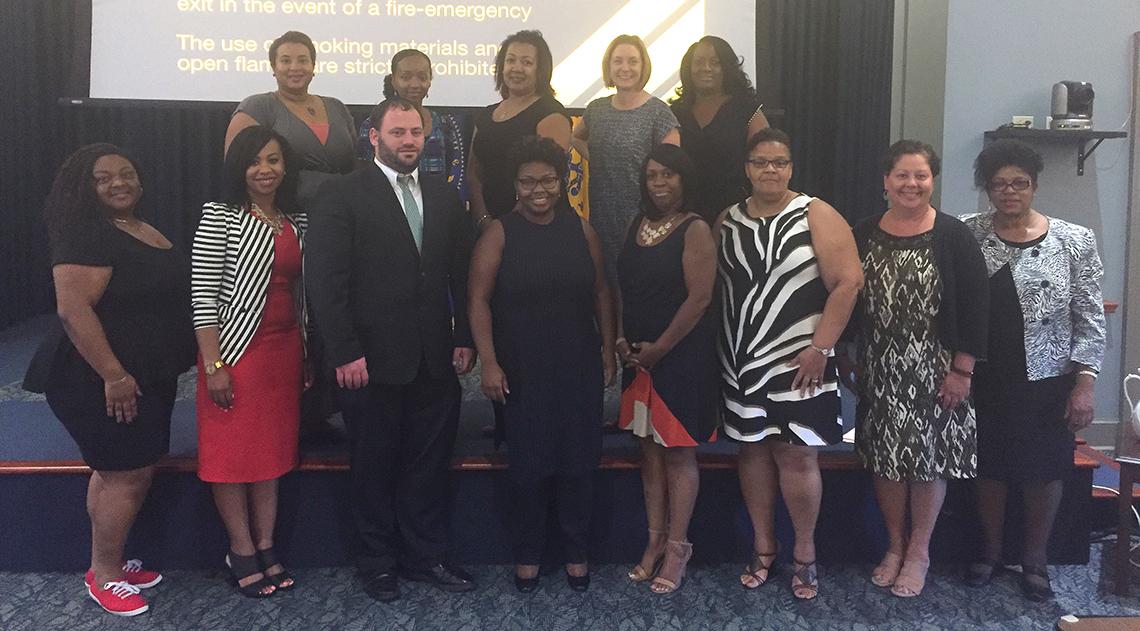OD Celebrates ACEP Graduates

The NIH Office of the Director recently celebrated the second graduating class of the Administrative Career Enhancement Program (ACEP). Participants in this OD development program heard remarks from LaVerne Stringfield, associate director for management, OD, and a commencement address from Calvin Jackson, deputy associate director for communications and public liaison.
Jackson encouraged graduates to “stay in touch with your mentors, both formal and informal, network with your fellow ACEP classmates, ask for what you want and do something that will get you out of your comfort zone on a regular basis. That is one of the best ways to grow and learn. Also, remember that character counts.” Jackson concluded by reciting the poem If by Rudyard Kipling.
ACEP, an initiative of the OD Voice, was formed to address organizational awareness and professional development for OD employees. The OD Voice analyzes yearly Employee Viewpoint Survey data and makes recommendations to increase employee engagement, enhance morale and capitalize on areas in which the OD excels.
ACEP provides training and development to OD employees at the GS-12 level and below. Participants are nominated to the program by their supervisor.
ACEP is supported by Dr. Lawrence Tabak, NIH principal deputy director, and also strongly supported by OD leadership. As a result, the program continues to be offered at no cost to staff by utilizing the knowledge and expertise within OD.
“I am so thankful that I was accepted into the ACEP program,” said recent graduate Anna Smogur-Saldivar. “The thoughtfully crafted sessions were led by welcoming senior staff members who helped us polish our skills—from mediation to written and oral presentations. ACEP also afforded me the opportunity to interact with peers whom I might not normally meet within such a large IC. ACEP allowed us to see how we fit into the larger OD structure.”
